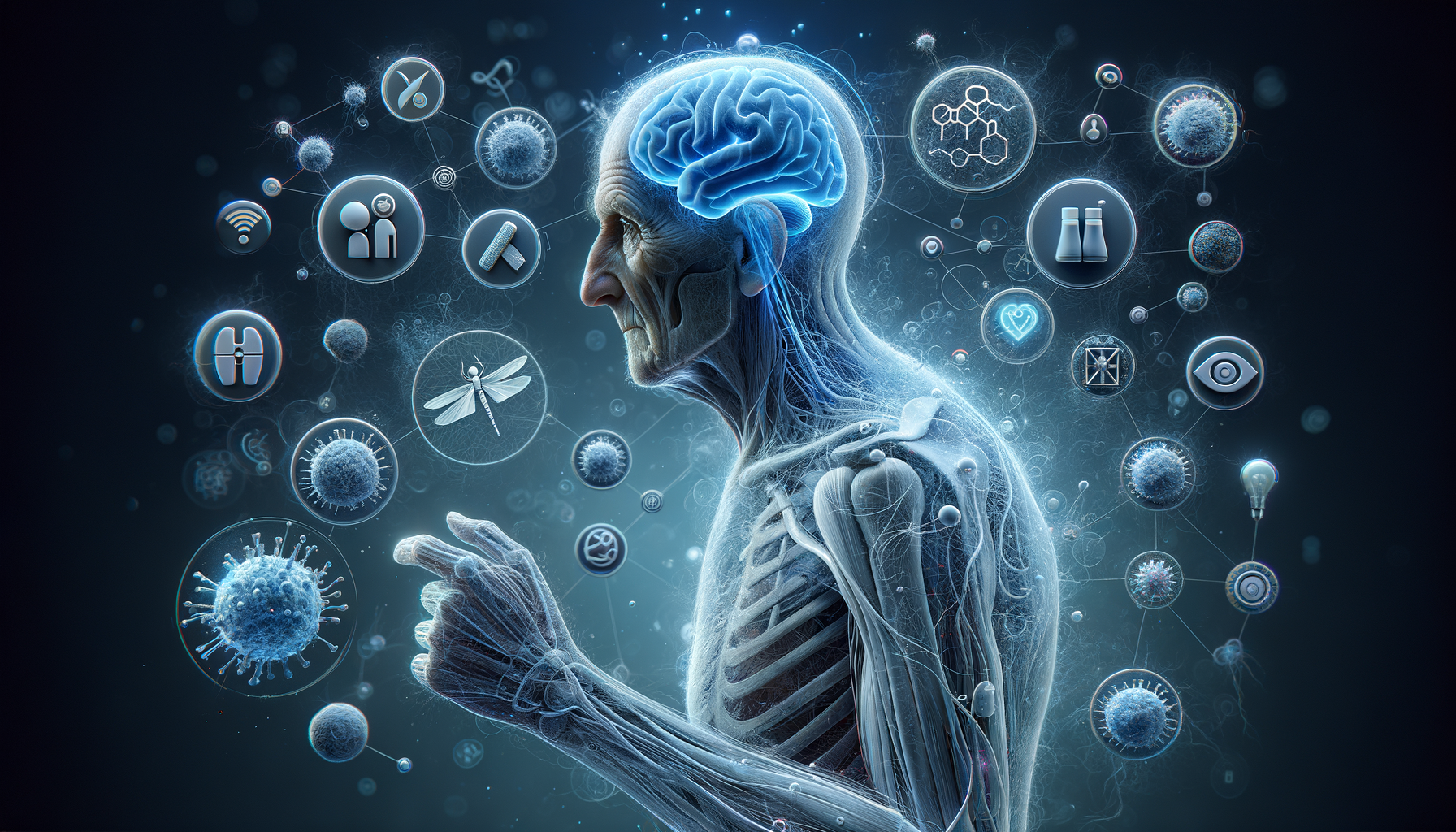Understanding Alzheimer’s Disease: A Closer Look
Alzheimer’s disease is a progressive neurological disorder that primarily affects memory and cognitive function. It is the most common cause of dementia among older adults, accounting for 60-80% of cases. The disease is characterized by the degeneration of brain cells, leading to a decline in mental abilities severe enough to interfere with daily life. Understanding Alzheimer’s is crucial because it not only impacts the individuals diagnosed but also their families and caregivers.
The symptoms of Alzheimer’s often begin with mild memory loss but can progress to a complete inability to hold a conversation or respond to the environment. Key risk factors include age, family history, and genetics. While age is the most significant known risk factor, Alzheimer’s is not a normal part of aging. Scientists are exploring how lifestyle factors such as diet, exercise, and engagement in social and cognitive activities might play a role in the disease’s onset and progression.
Recent research has focused on the role of plaques and tangles in the brain, which are two abnormal structures considered hallmarks of Alzheimer’s. Plaques are clumps of a protein called beta-amyloid, and tangles are twisted fibers of another protein called tau. These structures disrupt communication between neurons and ultimately lead to their death. Understanding these mechanisms is key to developing effective treatments.
Current Treatment Options for Alzheimer’s
Currently, there is no cure for Alzheimer’s disease, but there are treatments available that can help manage symptoms and improve quality of life. These treatments fall into two main categories: medications and non-drug therapies.
Medications approved by regulatory agencies can temporarily improve symptoms or slow their progression. These include cholinesterase inhibitors, which work by boosting levels of a chemical messenger involved in memory and judgment, and memantine, which regulates the activity of glutamate, another chemical messenger involved in brain functions such as learning and memory.
Non-drug therapies focus on managing behavioral symptoms and include approaches such as cognitive therapy, exercise, and social engagement. These interventions can help maintain cognitive function and improve mood and overall well-being. It is important for caregivers to tailor these strategies to the individual’s needs, as what works for one person may not be effective for another.
Research is ongoing to find more effective treatments, including those that target the underlying disease processes. Clinical trials are exploring various approaches, such as targeting beta-amyloid and tau proteins, reducing inflammation, and exploring the role of insulin resistance in the brain.
The Role of Lifestyle in Managing Alzheimer’s
While genetics play a role in Alzheimer’s, lifestyle factors can also significantly impact the disease’s progression and management. Engaging in regular physical activity, maintaining a healthy diet, and staying socially active can all contribute to better cognitive health.
Physical exercise has been shown to have numerous benefits for brain health. Regular aerobic exercise can improve cognitive function, reduce the risk of developing dementia, and slow its progression in those who already have it. Exercise increases blood flow to the brain and promotes the growth of new neurons, which can help maintain cognitive abilities.
Diet also plays a crucial role. Diets rich in fruits, vegetables, whole grains, and lean proteins, such as the Mediterranean diet, have been associated with a lower risk of Alzheimer’s. These diets are high in antioxidants and anti-inflammatory compounds, which help protect brain cells from damage.
Social engagement and mental stimulation are equally important. Activities that challenge the brain, such as puzzles, reading, and learning new skills, can help maintain cognitive function. Social interactions can also provide emotional support, reduce stress, and improve overall well-being.
Supporting Caregivers: The Unsung Heroes
Caring for someone with Alzheimer’s disease can be both rewarding and challenging. Caregivers often face emotional, physical, and financial burdens as they provide support for their loved ones. Recognizing the vital role caregivers play is essential in managing the disease effectively.
Caregivers need to be equipped with the right tools and knowledge to provide effective care. This includes understanding the progression of the disease, learning how to manage symptoms, and knowing when to seek professional help. Support groups and resources can provide much-needed assistance and emotional support.
It is also crucial for caregivers to take care of their own health. This means ensuring they have time for themselves, maintaining their physical health through regular exercise, and seeking support when needed. Burnout is a significant risk for caregivers, so taking steps to manage stress and maintain personal well-being is vital.
Communities and healthcare systems can play a role in supporting caregivers by providing access to resources, respite care, and financial assistance. Policies that recognize and support the work of caregivers can make a significant difference in their ability to provide care and maintain their own health.
Future Directions in Alzheimer’s Research
The future of Alzheimer’s research is promising, with scientists exploring new avenues to prevent, diagnose, and treat the disease. Advances in technology and a deeper understanding of the disease’s biology are paving the way for innovative approaches.
One promising area of research is the development of biomarkers for early diagnosis. Identifying Alzheimer’s in its earliest stages could allow for interventions that slow or even prevent the progression of the disease. Imaging techniques and the analysis of cerebrospinal fluid are being explored as potential diagnostic tools.
Another area of focus is the development of disease-modifying therapies. These therapies aim to alter the underlying disease processes rather than just manage symptoms. Researchers are investigating drugs that target amyloid plaques, tau tangles, and other pathways involved in neurodegeneration.
Finally, the role of personalized medicine is gaining attention. Understanding the genetic and molecular factors that contribute to Alzheimer’s can lead to more tailored and effective treatments. This approach holds the potential to transform how we manage and treat Alzheimer’s, offering hope for those affected by the disease.








